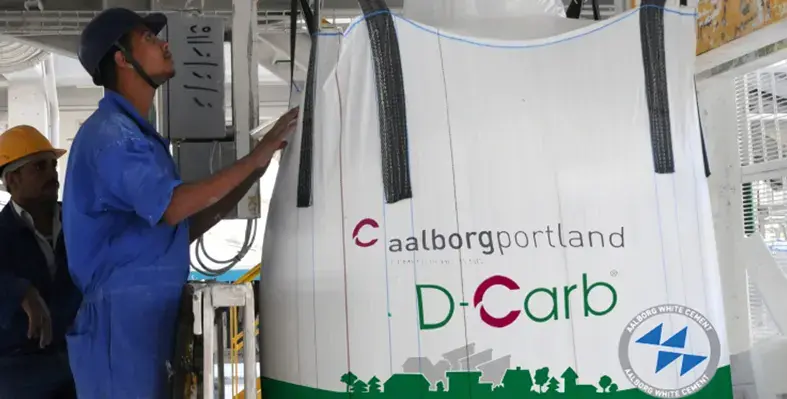Cementir Group has expanded its global decarbonisation efforts with the introduction of two lower-carbon white cement products under its D-Carb range
Produced in Egypt by Sinai White Cement Company, the new variants are now available across Middle East and Africa (MEA) markets.
The offerings include a Limestone Portland cement that meets CEM II/A-LL 52.5N EN197-1 requirements with an approximate 10% clinker reduction, and a CEM II/B-LL 42.5N option featuring around 20% clinker reduction when compared to the widely used Aalborg White CEM I 52.5R.
Designed to support industrial users in accelerating their decarbonisation pathways, the launch provides MEA customers with a practical shift toward lower-carbon construction materials without affecting performance, production efficiency or aesthetic outcomes.
“In 2024 and early 2025, we progressively introduced D-Carb products across Europe and APAC region, including Australia, where we have received positive feedback from diverse industry segments. We are pleased to see D-Carb enabling customers to meeting emerging low carbon requirements in building and urban infrastructure projects, while continuing to deliver the high performance and architecture aesthetics expected of white cement.” said Michele Di Marino, chief sales, marketing and commercial development officer of Cementir Group.
“Today, extending this portfolio to MEA with two tailored variants represents an important milestone in Cementir’s journey toward net-zero emissions by 2050. As the building and construction sectors worldwide increasingly prioritize decarbonization, these products reinforce our commitment to low-carbon solutions aligned with regional decarbonization targets.”
Stefano Zampaletta, Group Product and Solution Manager at Cementir Group, added, “The introduction of the two D-Carb® variants in MEA highlights our understanding of the diverse application requirements for lower-carbon materials in the region. Achieving reduced carbon footprints while maintaining the good standard of performance expected of white cement is a complex challenge, but these products demonstrate our capability to deliver both, supporting a shared ambition for sustainable construction across entire value chain.”
“MEA markets are rapidly embracing sustainability, and the arrival of D-Carb® positions us to lead this transition. By combining lower carbon emissions with the performance expected of white cement, we are setting a new benchmark and opening new opportunities for responsible construction in the region,” concluded Abdel Hamid Gadou, commercial director of Sinai White Cement.







